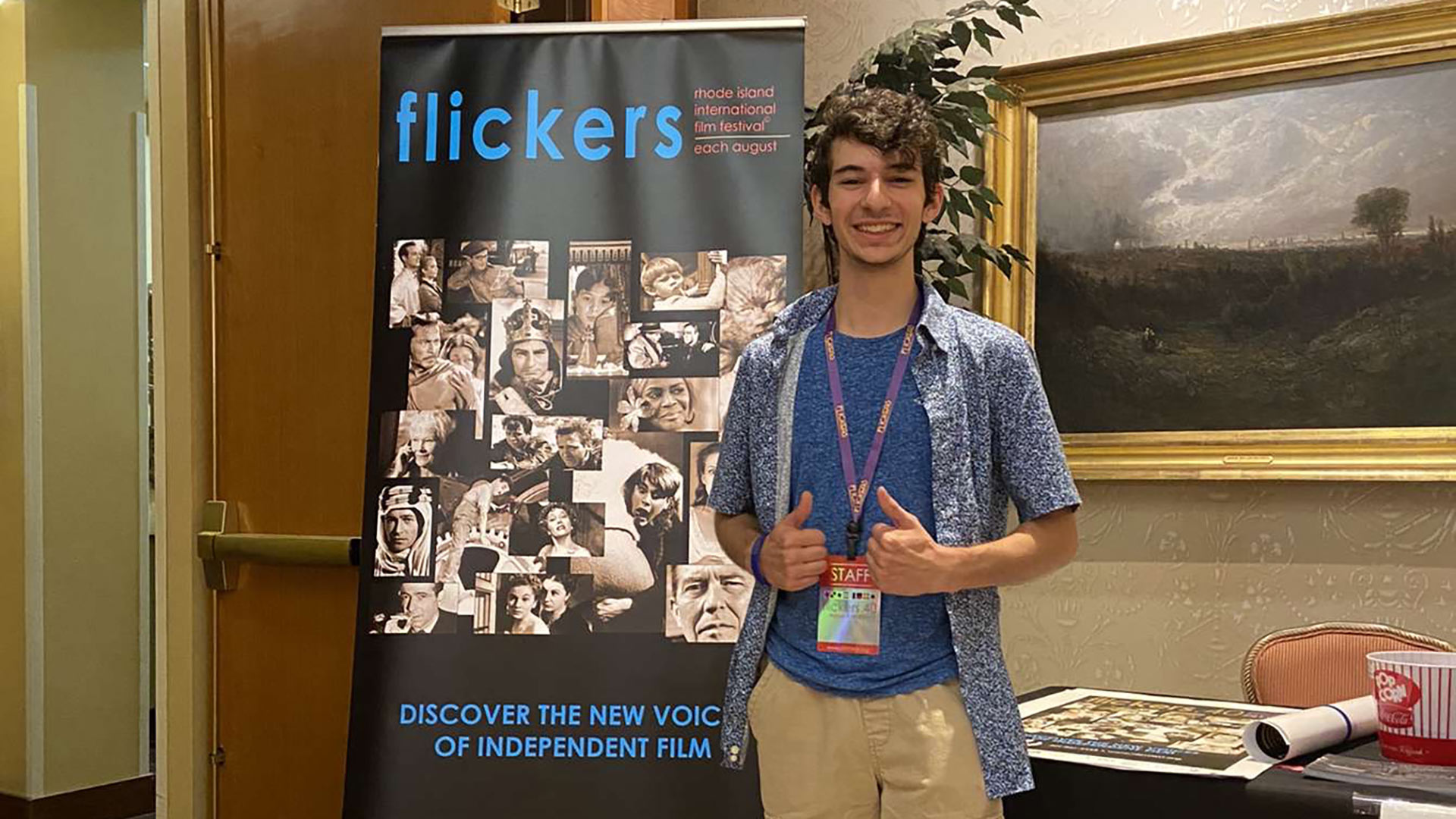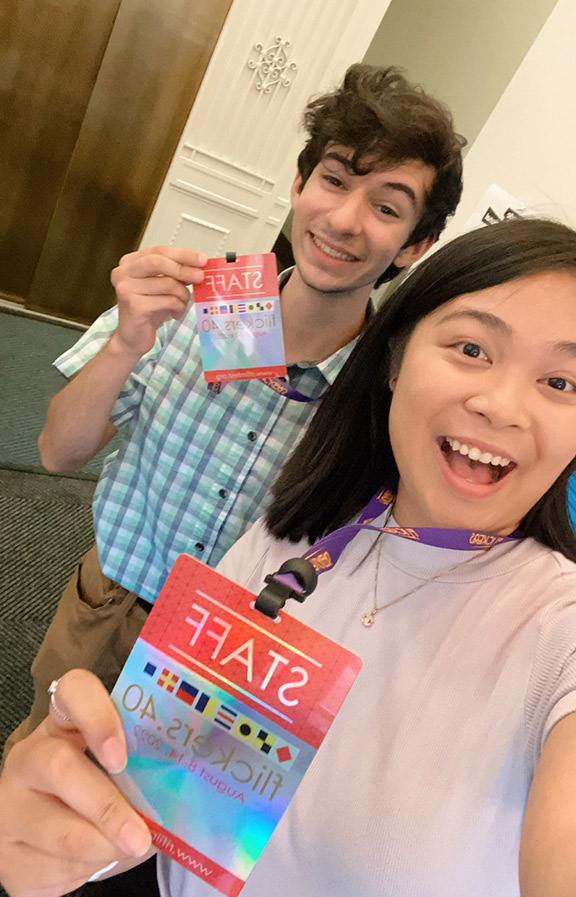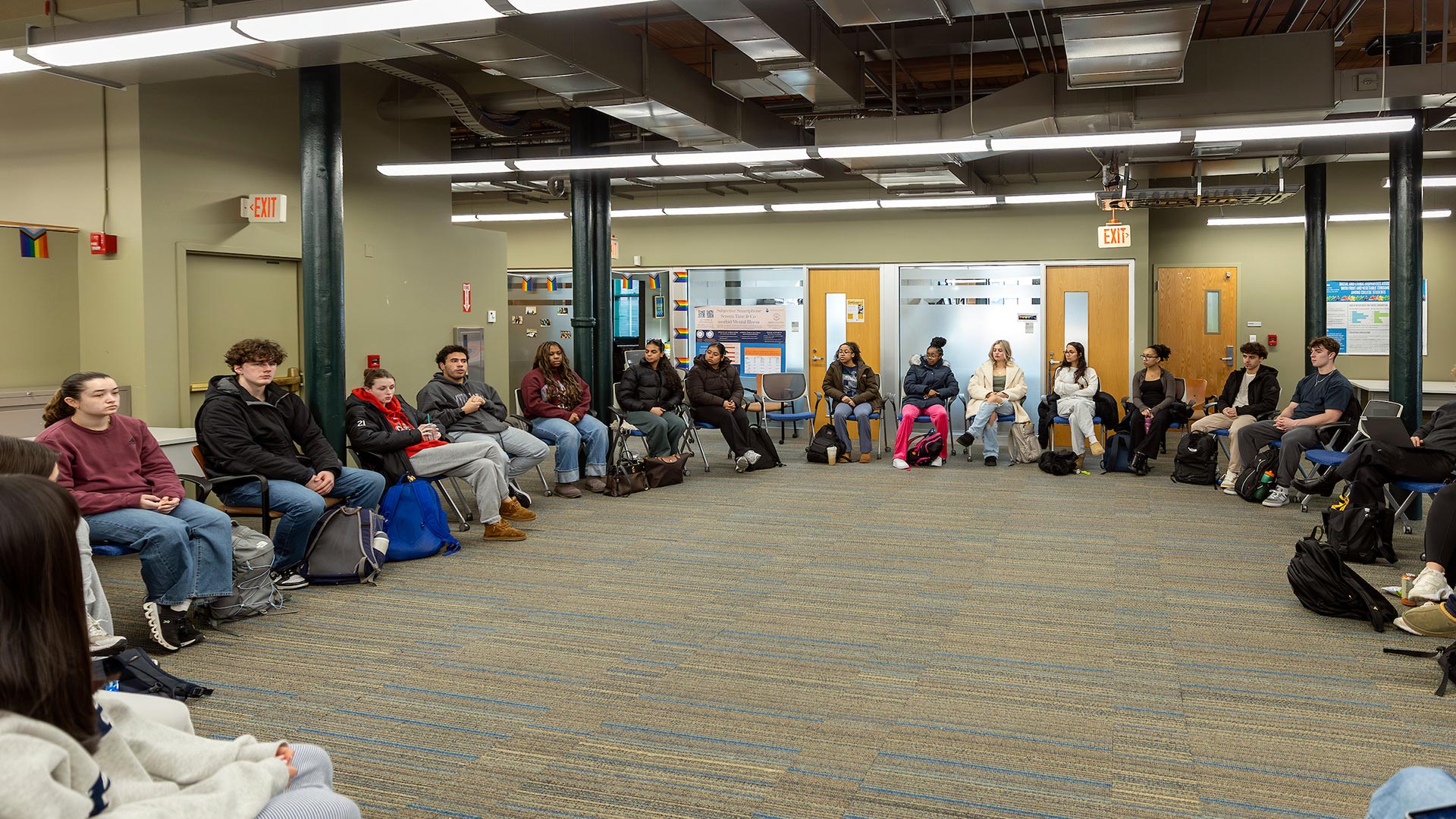3 Things I Learned While Interning for a Film Festival
Trevor Emma '25 is a Media & Communication major.

This summer, I had the opportunity to intern with Flickers, a non-profit organization that produces the Rhode Island International Film Festival (RIIFF) every August. RIIFF is Flickers’ largest event of the year and it invites filmmakers of various backgrounds from around the globe to show off their skills in writing, directing, and producing films.
For my internship with RIIFF, my responsibilities were to judge films, speak to filmmakers about their process, and make sure the festival ran as smoothly as possible. This internship put me in the center of the production industry and allowed me to meet a diverse mix of people, each with unique stories to tell. I learned a lot working at RIIFF, but here are three main things I learned while interning for a film festival.

1. Running a festival is not easy, but teamwork makes it happen
Our RIIFF team was composed of several other interns and our program director, Shawn Quirk. In the months leading up to the festival, we all had our own roles to ensure that everyone had an enjoyable experience at the festival. Now that I’ve been a part of this journey, I realize pulling off an international film festival is no easy feat. But with every stumble I had, there was someone to pick me back up. The work that was accomplished would not have been possible without support from the incredible team of interns I had the pleasure to work with, as well as our program director who kept everyone on track. The film festival taught me how important it is to be open and flexible, and remember we are all working towards a common goal.
(Photo: Fellow JWU student Hillary Thilavong '24 and I enjoyed working together during the festival.)
2. With hundreds of films to screen, you have to be organized
Much of the organization was thanks to Shawn, our program director. There was a selection of hundreds of films that needed to be screened throughout the week, all across several locations. All of these films were broken down into categories of 3 to 8 films and organized by genres and themes. A system was set in place to make sure we always had a venue staffed and equipped with the proper materials. Even when things didn’t always go to plan, we were always able to find a quick solution and keep everything running smoothly.
3. Being a filmmaker takes perseverance
When asked “What advice do you have for future filmmakers?,” almost every creator responded with “keep pushing forward even when it looks scary.” As an aspiring filmmaker myself, these words will stick with me for a long time.
After seeing all of the amazing things people are able to create, it shows me that even in the eyes of adversity it is possible to overcome hardships to achieve the goal you set your heart on.



